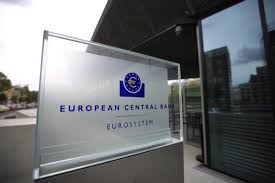Following recent industry instability, banks in the European Union must be “cautious” with dividends and other payouts and concentrate on maintaining healthy cash reserves, the EU’s banking watchdog told reporters.
The head of the European Banking Authority, José Manuel Campa, stated that banks had solid capital and liquidity buffers and that one important indicator of profitability was at a decade-high level right now.
But, he added that it was uncertain how the economy and bank clients will be impacted by the quickly rising interest rates in the long run.
Indeed, the impact will be felt, Campa told reporters. “We will continue to monitor that impact.”
The Paris-based EBA supervises routine health inspections of banks throughout the EU and ensures that national banking supervisors follow EU banking regulations. The findings of the most recent stress test are expected in the summer.
With the failure of Silicon Valley Bank and other US institutions, as well as the compelled buyout of struggling Credit Suisse by UBS, banking shares fell last month.
These occurrences should compel EU lenders to examine their capital planning more carefully, especially dividends and other distributions, in order to boost consumer and market confidence, according to Campa.
He suggested that they consider more conservative possibilities.
Notwithstanding the fact that banks currently have relatively good liquidity positions, he noted, they would still be required to repay central bank loans. Campa, a former senior manager at Spain’s Santander Bank, said, “We need to make sure that they continue to have sufficient so-called high-quality liquid assets.”
Given the ease with which depositors can move their money to another bank online, which led to issues at Silicon Valley Bank, banks should pass on increases in interest rates to depositors, according to Campa.
The banks would need to be extremely cautious in how they set their prices and proactive in keeping their depositors, according to Campa.
Concerns have been raised concerning “unrealized” losses in bank bond portfolios, which also contributed to Silicon Valley Bank’s demise.
“Around 20% of the balance sheets of American banks are made up of fixed-income holdings. 11.3% solely in EU banks. We’re urging managers to keep an eye on it, “said Campa.
THE CDS MARKET IS A “CONCERN”
With extreme volatility in CDS for Deutsche Bank, the credit default swaps (CDS) market is now an “area of worry” for regulators, according to Campa.
“We are actually attempting to decipher those markets’ connections from that occurrence. I believe that all authorities are evaluating this “said Campa.
The CDS markets are being examined by ESMA, the EU securities watchdog, according to the derivatives sector, which claims authorities already, have market data.
We must comprehend how these markets operate, their level of liquidity, and how simple it is for tiny numbers of positions to significantly affect price movements, according to Campa.
Nonetheless, Campa asserted that there is no proof that the current financial crisis necessitates a review of banking regulations.
The laws that were enacted following the global financial crisis should be implemented, according to the general consensus, Campa said.
The rules have helped rather than hindered, as we have discovered during the past two weeks.
The EU will soon alter its plan to close large banks that are in trouble to include medium-sized institutions.
“That’s good, in my opinion. I urge them to take that course of action “said Campa.
Opponents claim that Credit Suisse’s acquisition proved that the post-financial crisis regulations intended to eliminate “too big to fail” banks and prevent taxpayer assistance had failed.
“The Credit Suisse incident, in my opinion, illustrates how challenging it will always be to dissolve a sizable systemic bank. We won’t ever be completely at ease, in my opinion. We have come a long way, but it was never going to be easy.”

















